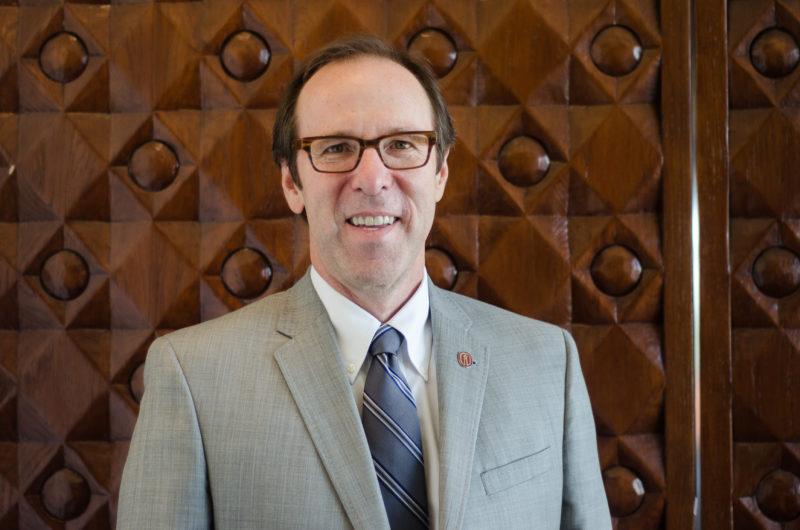Transitions are complex moments. They include mourning for what is left behind and excitement for what is to come. This spring we will experience a transition as Stephen Nickle, University Chaplain and the Everett H. Jones Chair of Ministry, retires to begin a new chapter in his life after eighteen years of dedicated service to Trinity. I am grateful for him.
I am also excited to embrace the opportunity created by searching for Trinity’s next chaplain. I invite you to consider the centrality of this position for our traditions. It is a role that must constantly evolve to meet the needs of the present, yet it is a role that remains constant — even rooted — in our Presbyterian traditions.
In a sense, the chaplain embodies our tradition. Trinity was founded by Cumberland Presbyterians in 1869. Most of my eighteen predecessor presidents were ministers and many considered themselves chaplains. Today the University has a covenant relationship with the regional Presbyterian synod that affirms our historical connections. A national search will identify the next Presbyterian minister who will continue this tradition.
As a student-centered university, we place a strong emphasis on the holistic student experience. This emphasis includes spiritual and religious life. A university chaplain guides faith development and discernment among students; they also provide pastoral care and counsel to students, faculty, staff and alumni. As a student-centered university, the next chaplain will report directly to the vice president for Student Life, which gives this individual direct connection with Student Life peers to embed this position seamlessly with our other co-curricular initiatives. This contact keeps the chaplain engaged with the best and most innovative practices in Student Life as a way to meet the needs of our community.
My own experience is that a chaplain can be supportive in ways individuals do not expect. As an undergraduate at Austin College — also founded by Presbyterians — contact with the chaplains and participation in the chapel programs I selected gave me spaces to understand and deepen my faith independent of my family. We all have to learn to believe on our own. Chaplains can create spaces and occasions to reflect on our beliefs and our sense of meaning. One college chaplain, Lucy Forster-Smith, describes this kind of reflection as taking “students into the territory of the human soul where dreams reside.”
Perhaps less visible to the community at large because it is personal and individual, chaplains can be trusted and confidential thought partners during what one scholar of adult development calls the “shipwreck times” of college life (Sharon Daloz Parks). Young adulthood often includes experiences of personal loss and disappointment, which force us to rediscover gratitude and amazement. Chaplains bring the tools for reflection and discovery that support us in these difficult moments.
Looking ahead through our lens of diversity and inclusion, Trinity’s chaplaincy in the 21st century must be characterized by a rich and multifaceted ministry. The chaplain is an officer of welcome, inclusion, hospitality and advocacy. Our community includes Christians, Jews, Muslims, Buddhists and other faiths. We are atheists, doubters, seekers and believers. Our ecumenical tradition will continue to require a chaplain who serves all individuals of all traditions, beliefs and practices as they seek their own path for their Trinity journey.
A new chaplain will bring change and should bring change. Chaplains are not repetitions of their predecessors, however beloved. Each alumni generation is deeply attached to the chaplain who served them, yet chaplains are charged with serving in the present to the best of their abilities. Each chaplain has different gifts, talents and abilities to bring to us. It is our role to be open and receiving to the grace of the present.
A faithful group of Cumberland Presbyterians intentionally set out to build a university of the highest order. Trinity has changed a lot in its almost 150 years. Today we may have a wider variety of beliefs, theologies and worldviews. We still hold true to this original intention, and it includes a chaplain who can be our partner on this journey.




